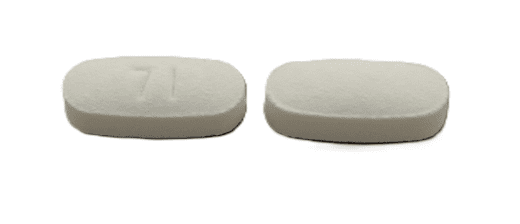Sacubitril/valsartan and Alcohol/Food Interactions
There are 2 alcohol/food/lifestyle interactions with sacubitril / valsartan.
Alcohol (Ethanol) Valsartan
Moderate Drug Interaction
Valsartan and ethanol (alcohol) may have additive effects in lowering your blood pressure. You may experience headache, dizziness, lightheadedness, fainting, and/or changes in pulse or heart rate. These side effects are most likely to be seen at the beginning of treatment, following a dose increase, or when treatment is restarted after an interruption. Let your doctor know if you develop these symptoms and they do not go away after a few days or they become troublesome. Avoid driving or operating hazardous machinery until you know how the medications affect you, and use caution when getting up from a sitting or lying position. It is important to tell your doctor about all other medications you use, including vitamins and herbs. Do not stop using any medications without first talking to your doctor.
Valsartan Food/Lifestyle
Moderate Food Interaction
Consumer information for this interaction is not currently available.
GENERALLY AVOID: Moderate-to-high dietary intake of potassium, especially salt substitutes, may increase the risk of hyperkalemia in some patients who are using angiotensin II receptor blockers (ARBs). ARBs can promote hyperkalemia through inhibition of angiotensin II-induced aldosterone secretion. Patients with diabetes, heart failure, dehydration, or renal insufficiency have a greater risk of developing hyperkalemia.
MANAGEMENT: Patients should receive dietary counseling and be advised to not use potassium-containing salt substitutes or over-the-counter potassium supplements without consulting their physician. If salt substitutes are used concurrently, regular monitoring of serum potassium levels is recommended. Patients should also be advised to seek medical attention if they experience symptoms of hyperkalemia such as weakness, irregular heartbeat, confusion, tingling of the extremities, or feelings of heaviness in the legs.
Switch to professional interaction data
Sacubitril/valsartan drug interactions
There are 335 drug interactions with sacubitril / valsartan.
Sacubitril/valsartan disease interactions
There are 7 disease interactions with sacubitril / valsartan which include:
More about sacubitril / valsartan
- sacubitril/valsartan consumer information
- Check interactions
- Compare alternatives
- Pricing & coupons
- Reviews (203)
- Drug images
- Side effects
- Dosage information
- During pregnancy
- Drug class: angiotensin receptor blockers and neprilysin inhibitors
- En español
Related treatment guides
Drug Interaction Classification
| Highly clinically significant. Avoid combinations; the risk of the interaction outweighs the benefit. | |
| Moderately clinically significant. Usually avoid combinations; use it only under special circumstances. | |
| Minimally clinically significant. Minimize risk; assess risk and consider an alternative drug, take steps to circumvent the interaction risk and/or institute a monitoring plan. | |
| No interaction information available. |
See also:
Further information
Always consult your healthcare provider to ensure the information displayed on this page applies to your personal circumstances.


